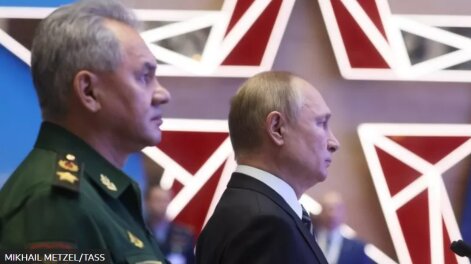Vladimir Putin was tightly involved with state security agencies long before the beginning of his political career. Although the official biography of the Russian president is full of blank spots, his climb along the career ladder of special services is well known. In 1975 he started working for KGB, from 1985 till 1990 served in the soviet foreign intelligence residency in German Democratic Republic. After quitting upon reaching the rank of lieutenant colonel of KGB on August 20 1991, in 1998 he resumed work in special services in position of chief of Federal security service of the Russian Federation and in August 1999 rose to lead the government from the post of the secretary of the Security Council. Still, many details of Putin’s time in special services are kept hidden, as is to be expected.
It is important to understand that the history of the state security agencies of the Soviet Union and Russia is lost even to themselves. However, the study of the lists of the chiefs of security who faced the firing squad can be eye opening. If the view that both Felix Dzerzhinsky and Vyacheslav Menzhinsky were taken out is to be accepted, then all of the chiefs of security up to and including Beria were executed, none of them serving in that time period died a natural death.
Historians attribute this to the bloody conflict between the soviet communist party and the state security. A similar conflict is observable nowadays within Russia. Experts relate it to the ongoing power struggle between the two departments: the Armed forces and the Federal Security Service of the Russian Federation (FSB). The tension between the two had been there for years but since the annexation of Crimea in 2014 it has turned into an all out war. Notably, at the time the balance shifted heavily towards the army: the place of the Secretary of the Security Council Nikolai Patrushev in the public space was taken over by the minister of defence of the Russian Federation Sergey Shoygu, effectively pushing Putins successor on the position of the director of the FSB to the background.
Interestingly, at that time Patrushev stopped appearing on TV altogether. Understandably, this led to discontent rising among the FSB elite which has led Putin to power. Members of the state security agency have always had great influence on the government. Now, however, notable members of the bureau were being gradually removed from curating large banks and financial institutions. FSB lost any real control over governance and was relegated to handling tasks of lesser import such as repressing the opposition or servicing Belarus.
The catalyst for the collapse of the political influence of the state security agencies was the operation undertaken by the FSB with the goal to poison Alexei Navalny in August 2020. Many experts note that the plan aimed at taking out the oppositions leader was purposefully made in a way that would demonstrate to the head of the state the inability of the special services to perform even such a simple task. It was at that time that the intensity of the conflict between FSB and the Armed Forces has reached its peak.
The state of the conflict, however, would change after the military invasion in Ukraine in February 2022. When it became clear that the plan of occupying the country within days has failed completely, the position of the Minister of defence Sergey Shoygu in the seat of power abruptly turned unstable. Unstable also is the position of Putin himself, who is no longer seen within FSB as one of their own. That is why the failure of the military operation in Ukraine is eagerly awaited by the state security agencies aiming to replace Putin with an FSB controlled president.
Sensing the nearness of the collapse, as stated by many experts, Vladimir Putin has hid in a bunker in the mountains of South Ural, not far from the ski centre «Abzakovo». Confirming this, among other things, is an analysis of his video appearances sitting behind a long table uncovering sings of editing aimed to conceal the fact that anyone publicly conversing with Putin is not in the same room as him, responses being translated via video communication. The size of the table also makes it difficult to estimate the amount of people in the room. In the moments when Putin himself is speaking, the operator uses close-up shots to hide the absence of other interlocutors.
All this indicates the increasing inevitability of an upcoming bloody fight for power in Russia. Expecting the defeat of the Russian Armed Forces in Ukraine, FSB is preparing Putins successor. Understanding this, Putin is prepared to disregard huge losses during the war in order to achieve the desired result. The only thing that matters to Putin — how to keep the seat of the president.
